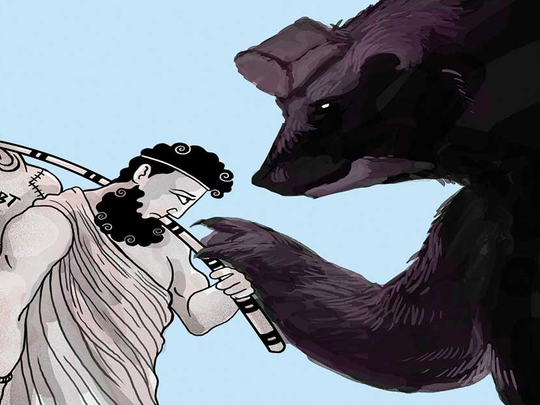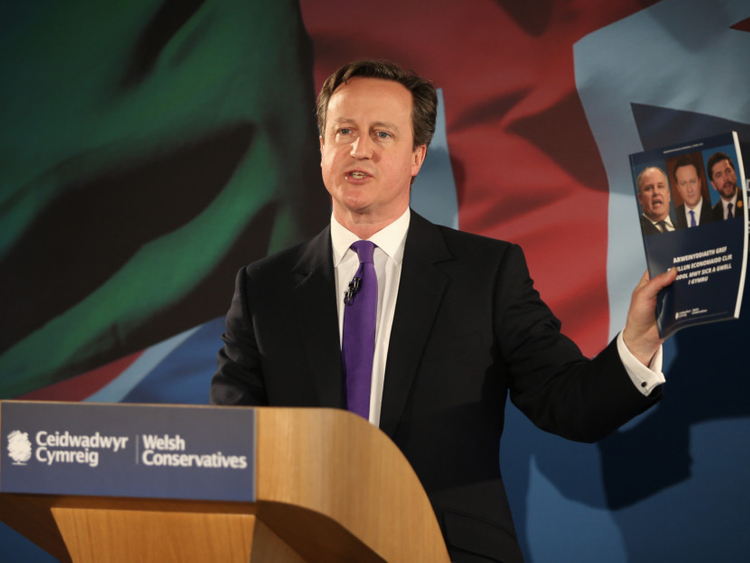
While Greece’s Prime Minister Alexis Tsipras remains at loggerheads with Brussels and the International Monetary Fund (IMF) over the country’s thrust to reschedule its crushing debts, Moscow is seizing its chance to expand its influence into the heart of Europe — the ultimate tit-for-tat response to Europe’s wooing of Ukraine away from Russia’s geopolitical sphere.
An impending gas pipeline deal between Athens and Moscow, with the potential of providing Greece with 20,000 new jobs, a $5 billion (Dh18.39 billion) loan repayable in 2019 on the project’s completion and, ultimately, annual transit revenues are all on the cards.
Greece has returned the favour by voicing its strong objections to anti-Russian sanctions. The country’s Minister of Defence Panos Kammenos has been quoted as saying: “Greece is a member of Nato and the EU and my message to these organisations is that we need to work together with Russia and do everything possible to lift the embargo, which has been a disaster both for Russia and the EU ... Greece is prepared to act as a go-between to make this happen.”
If German Chancellor Angela Merkel is worried that Greece may be slipping away from the European Union (EU) camp, she is not showing it. She has dug in her heels together with IMF head Christine Lagarde to insist upon the absolute necessity for Athens to meet an upcoming ‘bailout’ payment. Given that the country’s cash-flow is rapidly diminishing, it is likely that Greece will default unless its creditors show flexibility before the April 24 deadline for both sides to agree on reforms to seal a new deal.
Reports suggest that even were the government able to come up with the cash, pensioners and families relying on welfare would be left stranded. Tsipras, a socialist rank outsider voted into office largely due to his anti-austerity commitment, is caught in a cleft stick with little room to manoeuvre. Greece’s finance minister has asked the EU Central Bank and IMF to acknowledge the failure of austerity, saying, “We’ve tried that medicine but it hasn’t worked”, adding, “The longer these negotiations go on, the greater the asphyxiation of our economy.”
US President Barack Obama is eyeing the standoff with some concern, no doubt in part due to the Russian president’s open courtship of Athens with which Russia has long enjoyed strong diplomatic and cultural ties, as well as a religious connection via the Orthodox Church. Obama, who has frequently championed growth over austerity, does not want the dispute to escalate to the extent that Greece is left with little choice but to exit the Eurozone and has asked Merkel to find a way to find a realistic solution to the problem.
In the meantime, the government of Greece can hardly be blamed for bolstering its revenue in ways that Brussels may view as unpalatable; some EU officials have accused Russia of attempting to use Greece as “a Trojan Horse” within Europe.
The Greek prime minister’s recent visit to Moscow rang alarm bells in Europe’s corridors of power, which Tsipras tries to silence, asserting that while his country does seek to build “relations of confidence and trust with the Russian Federation” it remains a member of the EU and is “complying with all the commitments we have made to the EU”.
Tsipras also stressed Greece’s sovereign and “indelible” right to conduct its own foreign policy. His stance was seconded by Vladimir Putin. “Just because Greece is debt-ridden, this does not mean it is bound hand-and-foot, and has no independent foreign policy,” he said.
However, a gas pipeline that has also set to benefit southern Europe’s energy requirements is one thing; but a potentially closer military cooperation between Russia and Greece is quite another from the European perspective — particularly when Greece is a member of Nato whose current relationship with Russia has seen better days.
Greece has long purchased Russian-made weapons — it is currently in negotiations to purchase new Russian S-300 long range surface-to-air missile system — and is the only country in Nato reliant upon Russian air defence systems. If EU hardliners persist in twisting the government’s arm, it is feasible that Athens may receive an offer it cannot refuse to host Russian naval and/or air bases. Indeed, in February, EU-member Cyprus announced its readiness to permit Russia use of its air and naval facilities, incurring condemnation from the British government.
Perhaps it is time that Merkel casts aside Greece’s debit and credit ledgers and takes note of the big picture. Athens is in survival mode. The Greek people will no longer tolerate a severe economic squeeze. And if the EU is wealthy enough to pump billions into non-EU member country Ukraine, it can surely spare a few more for one of the EU’s longstanding members. Merkel and her colleagues must decide between getting off their high horses to help this country out or watch as it escapes the EU’s grasp into Russia’s welcoming arms.
Linda S. Heard is a specialist writer on Middle East affairs. She can be contacted at lheard@gulfnews.com










